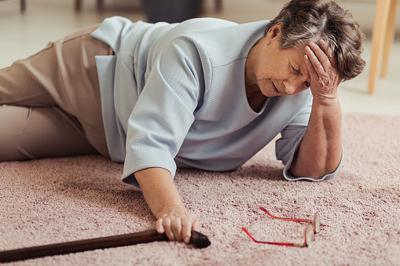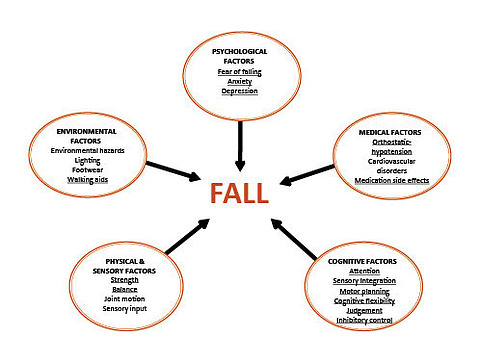Getting older for many of us is a slow, gradual and natural process. We start to feel a bit stiffer in our joints when we wake in the morning, we are less flexible with reduced strength, stamina and our balance deteriorates.
Our posture becomes more stooped and our walking is not quick and assured with some of us in need of a mobility aid to help maintain our function and independence.
Yes, we can all fall, sometimes a simple mechanical fall or accident can happen….so why are falls a big deal for elderly people ?
Why are falls a bigger deal for elderly people ?
Answer snippet:
Falls are a bigger deal for the elderly as this puts them at an increased risk of further falls.
The emotional and psychological impact of falling can have a massive impact on elderly and senior’s day to day lives. As we get older we are a higher risk of a fall resulting in a hip, ankle, shoulder, wrist fracture occurring, and the elderly are also at risk of having weaker bones due to osteoporosis. Also, as we age our immune system doesn’t function as well and it takes longer time for our bodies to heal.
1) Increased risk of further falls
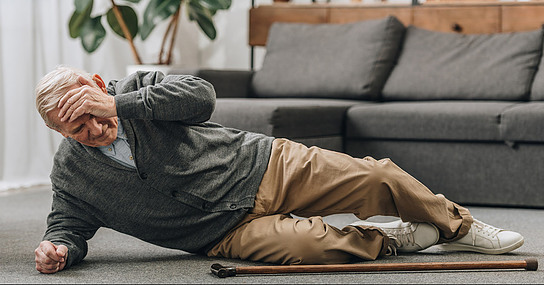
Falls in older people are almost always “multi factorial.” This means there are usually several factors that are contributing to a fall, or to a person’s fall risk. The more high risk factors the greater the chance of them falling.
That initial fall may be because of some acute problem (urinary tract infection or low blood pressure for example), or an accident or mechanical fall, but the evidence suggests that this puts you at a greater risk of further falls.
Around 50% of the elderly and seniors who fall are likely to fall again.
2) Psychological impact of falls
The emotional and psychological impact of falling can have a massive impact on elderly and senior’s day to day lives.
For a younger person, a fall may not seem like much, but for many elderly people a single fall can have a devastating effect on their health and well-being.
A fall can have a massive impact on the elderly and seniors mental well being, leaving them feeling older than they actually are, and angry or frustrated, with the very real fear of another fall.
The fear of falling again means many of the elderly become less mobile which affects their function and independence.
By trying to do less, fearful of another fall, actually makes many of the elderly weaker and de-conditioned. This that puts them at a greater risk of further falls.
3) Greater risk of a fracture
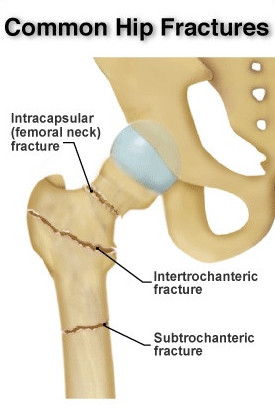
Fractures are the most common serious injury resulting from the elderly and seniors falling.
Most fractures are normally of the hip, pelvis, wrist and humerus in this age group result from the combined effects of falls, osteoporosis, and several other factors.
Advancing years, a low bone mass, and previous fractures are strong risk factors for fractures, but each type of fracture also has its own set of unique risk factors.
4) Increase in osteoporosis as we get older
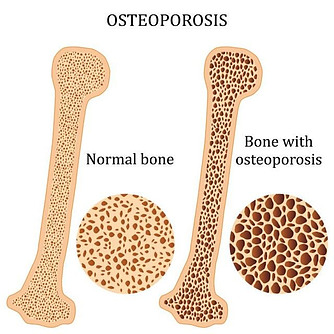
Osteoporosis is one of the most common bone system diseases that is associated with an increased risk of bone fractures and causes many complications for patients. It is a progressive condition that leads to you having an increased number of fragile bones as you get older.
With age, the prevalence of this disease increases so that it has become a serious problem among the elderly and seniors.
Fragile bones are more likely to break easily, and bones in your wrist, hip and spine are particularly vulnerable.
Bone is a living tissue and new bone replaces old bone throughout life. However, as we age, the cells that build new bone don’t work as quickly as the cells that remove old bone.
This leads to an overall loss of bone tissue, which makes bones more fragile, weaker and at risk of breaking.
5) Slower healing as we age
Unfortunately, as we age wounds are slower to heal.
There are many reasons for this, such as individual health and medical conditions, natural body changes that occur and lifestyle choices.
How getting older changes how our body heals
As we age our skin and other related tissues undergo gradual changes which means the healing of wounds is more difficult.
You skin loses some of its flexibility due to decreased amount of collagen and elastin available, which makes the skin much easier to break or tear.
Also, as we get older our skin begins to thin all over, and oil production in our skin decreases making it drier and more irritable or itchy.
Conclusion
Getting older is a big deal for the elderly with increased risk of further falls and the massive psychological and emotional distress it causes. In addition, the elderly and seniors are at a much higher risk of fractures with slower healing times from injuries.
Hopefully you have found the information useful, but if you need any further help or advice please contact me at mark@elderlyfallsprevention.com and I will be happy to help.

